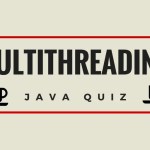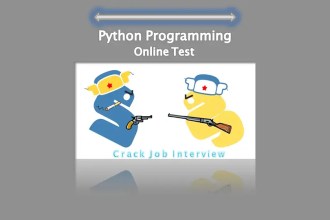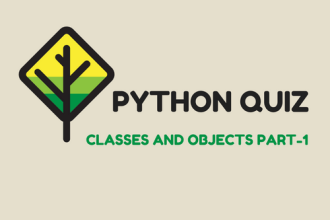Hey readers! We have a new Java quiz on exception handling with 20 interview questions to test your coding skills and knowledge.
We’ve ensured that all the exception interview questions and answers are of the highest quality and correctness. Most questions focus on Java exception handling, with a sprinkling of core Java concepts for added flavor.
This Java exception-handling test is perfect for anyone beginning to learn Java and has read through many online Java tutorials but still lacks practical experience. It’s a great way to prepare for a Java interview or to showcase your potential as a candidate in your current job.
Java Quiz – 20 Exception Handling Interview Questions
Answer Key with Reasoning
Here’s a concise reasoning table explaining the correct answers for all 20 Java exception-related questions:
| Q# | Correct Answer | Reasoning |
|---|---|---|
| 1 | throw | The throw keyword is used to explicitly throw an exception in Java. |
| 2 | Throwable | Throwable is the superclass of all exceptions and errors in Java. |
| 3 | new | The new operator creates exception objects before throwing them. |
| 4 | throws | The throws keyword is used in method signatures to declare exceptions that a method might throw. |
| 5 | Default handler | If an exception is not caught, Java’s default exception handler terminates the program and prints the error. |
| 6 | getMessage() | The getMessage() method returns a string containing details about the exception. |
| 7 | printStackTrace() | This method prints the full stack trace of an exception, helping in debugging. |
| 8 | B | The try block throws an ArithmeticException, which is caught in catch, printing B. |
| 9 | finally | The finally block always executes after try-catch, whether an exception occurs or not. |
| 10 | Checked at compile-time | Checked exceptions must be handled at compile-time using try-catch or throws. |
| 11 | Throwable | Throwable is the base class for all exception classes (Exception and Error). |
| 12 | Declares exceptions | The throws keyword informs the compiler that a method might throw exceptions. |
| 13 | RuntimeException | RuntimeException and its subclasses (e.g., NullPointerException) are unchecked exceptions. |
| 14 | Prints 'Caught' | The method throws an exception, which is handled in the catch block, printing "Caught". |
| 15 | Yes | A final method can throw exceptions, but it cannot be overridden. |
| 16 | Catches exception | The catch block handles exceptions thrown inside the try block. |
| 17 | Yes | Java allows multiple catch blocks to handle different types of exceptions separately. |
| 18 | Java runtime system | If an exception is not caught, the Java runtime system handles it by printing the stack trace. |
| 19 | Runtime Error | Since NullPointerException is not caught, it propagates, causing a runtime error. |
| 20 | Program crashes | Unhandled exceptions cause the program to terminate abnormally. |
Key Takeaways from Java Exceptions Quiz
We recommend you not just leave after the quiz instead check out some cool quizzes and tutorials on Java/Python/Selenium and related programming articles from our blog.
Also, thank you for taking our Java quiz with 20 interview questions related to exception handling. We hope it has helped you strengthen your skills. But don’t stop here, to learn more on this topic, read our in-depth guide on exceptions in Java.
Lastly, our site needs your support to remain free. Share this post on social media and subscribe to our YouTube channel.
Enjoy Coding,
TechBeamers





